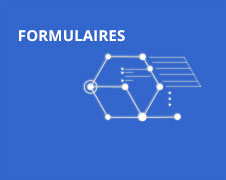Sylvain Meloche
Signalisation et croissance cellulaire
- Professeur titulaire
-
Faculté de médecine - Département de pharmacologie et physiologie
Pavillon Marcelle-Coutu, local 2306-5
Médias
© IRIC
Portrait
Expertise de recherche
La prolifération tissulaire est un processus finement contrôlé qui résulte d’un équilibre entre la division et la mort cellulaire. Chez les organismes multicellulaires, les cellules interrogent continuellement leur environnement pour la présence de nutriments et de signaux (mitogènes, facteurs trophiques, stress) afin de décider si elles doivent s’auto-renouveler, proliférer, se différencier ou mourir. Une mauvaise interprétation de ces signaux peut entraîner le développement d’un cancer ou d’autres maladies.
Le laboratoire de Sylvain Meloche utilise une approche interdisciplinaire qui comprend la biochimie, la biologie cellulaire, des modèles de souris génétiquement modifiées et la chimie biologique pour comprendre comment les voies de signalisation contrôlent le destin des cellules normales et cancéreuses. Définir l’importance et l’inter-connectivité de ces événements de signalisation permettra de mieux comprendre le processus de transformation maligne et aidera à l’identification de nouvelles molécules cibles pour le traitement du cancer.Projets de recherche en cours dans le laboratoire :
- Étude de la régulation et du rôle de la voie de signalisation des MAP kinases ERK1/2 dans la prolifération et différenciation cellulaire, et implication dans la pathogénèse du cancer.
- Étude de la régulation et du rôle de la voie de signalisation atypique ERK3/4-MK5 dans la différenciation cellulaire, la réponse au dommage à l’ADN et la suppression tumorale.
- Analyse fonctionnelle des enzymes de conjugaison de l’ubiquitine (E2s) et des enzymes de déubiquitination (DUBs) impliquées dans le contrôle du cycle cellulaire et la tumorigénèse.
- Développement de molécules inhibitrices ciblant le système ubiquitine-protéasome comme nouvelle approche de thérapie ciblée du cancer.
- Identification d’une nouvelle cible pharmacologique dans le cancer du foie.
Biographie
Sylvain Meloche, Ph.D., est chercheur principal à l’Institut de recherche en immunologie et en cancérologie de l’Université de Montréal. Il est aussi titulaire de la Chaire de recherche du Canada en signalisation cellulaire. Après des études doctorales en pharmacologie moléculaire à l’Université de Montréal, Sylvain Meloche a effectué un stage postdoctoral en immunologie à l’Institut de recherches cliniques de Montréal, puis un second en biochimie à l’Université de Nice en France. En 1992, le professeur Meloche débute sa carrière d’enseignement et établit ses activités de recherche au Centre hospitalier de l’Université de Montréal. Plus récemment, depuis son arrivée à l’IRIC en 2003, Sylvain Meloche a contribué à identifier les mécanismes de régulation de la protéine p27 et a démontré qu’elle jouait un rôle très important dans le développement de tumeurs. Il poursuit également ses travaux sur la famille d’enzymes MAP kinases par le biais d’une approche génétique, notamment en créant des modèles de souris déficientes pour ces enzymes.
Affiliations et responsabilités
Affiliations de recherche
Unités de recherche
Membre
Enseignement et encadrement
Encadrement
Thèses et mémoires dirigés (dépôt institutionnel Papyrus)
Identification de nouveaux mécanismes de régulation de la MAPK atypique ERK3
Cycle : Maîtrise
Diplôme obtenu : M. Sc.
Étude des facteurs de régulation de la stabilité de la MAPK atypique ERK3 ainsi que de son rôle dans la progression tumorale du cancer du sein
Cycle : Doctorat
Diplôme obtenu : Ph. D.
Synthèse et optimisation d'inhibiteurs spécifiques de ERK3 pour le développement d'une thérapie ciblée au cancer du sein triple-négatif
Cycle : Maîtrise
Diplôme obtenu : M. Sc.
Implication de la signalisation de la tyrosine kinase Yes dans la carcinogenèse hépatique
Cycle : Doctorat
Diplôme obtenu : Ph. D.
Le rôle du gène suppresseur de tumeur Il17rd dans la carcinogénèse et la réponse immunitaire innée
Cycle : Doctorat
Diplôme obtenu : Ph. D.
Exploring the roles of atypical MAP kinases ERK3 and ERK4 during inflammation
Cycle : Maîtrise
Diplôme obtenu : M. Sc.
Identification de nouveaux substrats de la voie Ras-MAP Kinase
Cycle : Doctorat
Diplôme obtenu : Ph. D.
Identification des composantes du système ubiquitine-protéasome régulant la stabilité de la MAPK atypique ERK3.
Cycle : Doctorat
Diplôme obtenu : Ph. D.
Study of the subcellular localization of cell cycle regulator Cks1 and its impact on cancer
Cycle : Maîtrise
Diplôme obtenu : M. Sc.
Implication de MEK1 et MEK2 dans l'initiation et la progression du cancer colorectal
Cycle : Doctorat
Diplôme obtenu : Ph. D.
Caractérisation de la voie d'activation des interférons de type I
Cycle : Doctorat
Diplôme obtenu : Ph. D.
Implication de la voie ERK3/4-MK5 dans la phase G2/M du cycle cellulaire
Cycle : Doctorat
Diplôme obtenu : Ph. D.
Caractérisation de la MAP kinase atypique Erk4 : activation et fonction physiologique
Cycle : Doctorat
Diplôme obtenu : Ph. D.
Enrichissement de protéines ubiquitinées et une nouvelle approche protéomique pour l'identification des sites d'ubiquitination
Cycle : Maîtrise
Diplôme obtenu : M. Sc.
Nouveaux modes de régulation des voies MAP kinase eucaryotes par phosphorylation
Cycle : Doctorat
Diplôme obtenu : Ph. D.
Rôle physiologique de la MAP kinase atypique ERK3 : analyse génétique et étude de l'expression génique chez la souris
Cycle : Doctorat
Diplôme obtenu : Ph. D.
Régulation de la dégradation de p27Kip¹ par phosphorylation de la protéine adaptatrice Cks 1
Cycle : Maîtrise
Diplôme obtenu : M. Sc.
Régulation de la MAPK atypique ERK3 par le système ubiquitine-protéasome
Cycle : Doctorat
Diplôme obtenu : Ph. D.
Caractérisation du rôle de la voie Jak/STAT dans la réponse mitogénique des récepteurs couplés aux protéines G
Cycle : Maîtrise
Diplôme obtenu : M. Sc.
Inactivation de la MAP kinase atypique ERK4 via la délétion du gène Mapk4 murin
Cycle : Maîtrise
Diplôme obtenu : M. Sc.
Régulation de la voie Jak/STAT par les récepteurs couplés aux protéines G : rôle des petites protéines G de la famille Rho.
Cycle : Doctorat
Diplôme obtenu : Ph. D.
Mécanismes de régulation des enzymes MEK1 et MEK2 de la voie MAPKerk
Cycle : Maîtrise
Diplôme obtenu : M. Sc.
Mécanismes moléculaires impliqués dans l'action hypertrophique de l'angiotensine II dans les cellules musculaires lisses vasculaires
Cycle : Doctorat
Diplôme obtenu : Ph. D.
Régulation du cycle cellulaire par le gène suppresseur de tumeur p107
Cycle : Doctorat
Diplôme obtenu : Ph. D.
Régulation du facteur répresseur de la traduction 4E-BP1 par l'angiotensine H dans les cellules de muscles lisses vasculaires
Cycle : Maîtrise
Diplôme obtenu : M. Sc.
Répression de l'activité des MAP kinases ERK1/ERK2 par une protéine tyrosine phosphatase dans les fibroblastes transformés par les oncogènes Raf22W, v-Ha-Ras et v-Src
Cycle : Maîtrise
Diplôme obtenu : M. Sc.
Rôle des MAP kinases et de la p79[S6K] [suscrit] dans l'action hypertrophique de l'angiotensine II sur les cellules musculaires lisses
Cycle : Maîtrise
Diplôme obtenu : M. Sc.
Implication d'une voie tyrosine kinase dans l'effet hypertrophique de l'angiotensine II sur les cellules musculaires lisses vasculaires
Cycle : Maîtrise
Diplôme obtenu : M. Sc.
Projets
Projets de recherche
Role and therapeutic potential of the atypical MAP kinase ERK3 in basal-like breast cancer progression
Regulation of the mammalian proteome by pH
Development and preclinical validation of first-in-class dual inhibitors of the atypical MAP kinases ERK3 and ERK4
RAS-MAPK signal transduction in normal and cancer cells
Plateforme de criblage à haut débit de l’IRIC/UdeM: Technologie de peinture cellulaire en temps réel et de classification phénotypique par intelligence artificielle pour la découverte de nouveaux médicaments.
Regulation of innate antiviral defenses through Interleukin-17 receptor D (IL-17RD)
Role of the deubiquitylating enzyme USP17 in colorectal cancer
AXE-0456-UM_Validation pré-clinique de la combinaison d’un inhibiteur de tyrosine kinases et de l’immunothérapie dans le traitement du cancer
AXE-0456-UM_Validation pré-clinique de la combinaison d’un inhibiteur de tyrosine kinases et de l’immunothérapie dans le traitement du cancer
Role and therapeutic potential of the atypical MAP kinase ERK3 in basal-like breast cancer progression
Live cell imaging platform for the mechanistic analysis of cell differentiation, migration and division
Advanced preclinical validation of SRC-family kinases as therapeutic targets in liver cancer
CECR_IRICoR_Advanced pre-clinical development of first-in-class covalent Yes/Src inhibitors for cancer treatment
Reciprocal relationship between pH modulation and proteome remodeling
Development and preclinical validation of first-in-class dual inhibitors of the atypical MAP kinases ERK3 and ERK4
Development and preclinical validation of first-in-class dual inhibitors of the atypical MAP kinases ERK3 and ERK4
FD_See, Aim, Kill : A one-stop precise theranostic platform for in-situ detection and elimination of early-stage melanoma.
Role and therapeutic potential of ERK3/ERK4 MAP kinases in acute kidney injury
Towards a fast and high-resolution thermal imaging dermatoscope for early-stage detection of small-size melanoma.
Role of ERK3 MAP kinase signaling in triple-negative breast cancer progression and metastasis
Plateforme de criblage à haut débit de l’IRIC/UdeM : Criblage à haut débit dans des cultures d’organoïdes de tumeurs de patients pour identifier une thérapie de précision.
Mise en place d’un double diplôme en biologie du cancer IRIC/IRCM
Identification and preclinical development of small molecule inhibitors of the cancer-related ubiquitin-conjugating enzyme UBCH10
A novel tyrosine kinase oncogenic signalling pathway with therapeutic potential in hepatocellular carcinoma
Can deep-learning algorithms identify genetic mutations or aberrant cellular signalling pathways from medical images
BIOCHEMICAL CHARACTERIZATION OF CELL CYCLE DEUBIQUITINATING ENZYMES
Role of ERK3 MAP kinase signaling in breast tumor initiating cells and cancer progression
Identification de nouveaux régulateurs de la voie Ras/MAPK à l'aide d'une nouvelle approche protéomique
UNE APPROCHE CHIMIO- ET PROTEO-GENOMIQUE EN MEDECINE PERSONNALISEE POUR LA LEUCEMIE MYELOIDE AIGUE
Development of first-in-class small molecule inhibitors of a cancer-related ubiquitin-conjugating enzyme
REGULATION, DOWNSTREAM TARGETS AND FUNCTIONAL SPECIFICITY OF THE MAP KINASES ERK1 AND ERK2
CANADA RESEARCH CHAIR IN CELLULAR SIGNALING
ROLE OF ERK1/2 SIGNALING IN THE CHROMOSOMAL INSTABILITY AND MALIGNANT PROGRESSION OF COLORECTAL CANCER
REGULATION, DOWNSTREAM TARGETS AND FUNCTIONAL SPECIFICITY OF THE MAP KINASES ERK1 AND ERK2
ROLE OF ATYPICAL ERK3/ERK4-MK5 SIGNALING IN CELL CYCLE PROGRESSION AND TUMORIGENESIS
IRICOR - DEVELOPPEMENT DE MOLECULES BLOQUANT LA DEGRADATION DE SUPPRESSEUR TUMORAL P21 COMME THERAPIE CIBLEE DU CANCER (P21/27 PROGRAM)
IMPACT OF DEREGULATED ERK1/2 SIGNALING ON POLYPLOIDIZATION AND PROGRESSION OF COLORECTAL CANCER
IRICOR // SYNTHESIS OF DITERPENES CHEMICAL LIBRARY AND STRUCTURE ACTIVITY RELATIONSHIP (SAR) ON A NEW COLON CANCER SELECTIVE ANTIPROLIFERATIVE AGENT
IRICOR - THERAPIES CIBLEES DES CELLULES PROPAGATRICES DU CARCINOME HEPATOCELLULAIRE (CHC)
REEXPRESSION OF SEF AS TARGET THERAPY FOR PROSTATE CANCER
IDENTIFICATION DE NOUVEAUX FACTEURS DE CROISSANCE STIMULANT L'EXPANSION DES CELLULES SOUCHES HEMATOPOIETIQUES HUMAINES
IDENTIFICATION DE NOUVEAUX FACTEURS DE CROISSANCE STIMULANT L'EXPANSION DES CELLULES SOUCHES HEMATOPOIETIQUES HUMAINES
ROLE OF ATYPICAL ERK3/ERK4-MK5 SIGNALING IN CELL CYCLE PROGRESSION AND TUMORIGENESIS
TARGETING THE DEGRADATION OF THE CYCLIN-DEPENDENT KINASE INHIBITOR P21 AS A NOVEL APPROACH TO CANCER THERAPY
Rayonnement
Publications et communications
Publications
- Frémin C, Meloche S. From basic research to clinical development of MEK1/2 inhibitors for cancer therapy. J Hematol Oncol 2010; 3: 8.
- Voisin L, Saba-El-Leil MK, Julien C, Frémin C, Meloche S. Genetic demonstration of a redundant role of extracellular signal-regulated kinase 1 (ERK1) and ERK2 mitogen-activated protein kinases in promoting fibroblast proliferation. Mol Cell Biol 2010; 30: 2918-2932.
- Rousseau J, Klinger S, Rachalski A, Turgeon B, Déléris P, Vigneault E, Poirier-Héon JF, Davoli MA, Mechawar N, El Mestikawy S, Cermakian N, Meloche S. Targeted inactivation of Mapk4 in mice reveals specific nonredundant functions of Erk3/Erk4 subfamily mitogen-activated protein kinases. Mol Cell Biol 2010; 30: 5752-5763.
- Déléris P, Trost M, Topisirovic I, Tanguay PL, Borden KL, Thibault P, Meloche S. Activation loop phosphorylation of ERK3/ERK4 by group I p21-activated kinases (PAKs) defines a novel PAK-ERK3/4-MAPK-activated protein kinase 5 signaling pathway. J Biol Chem 2011; 286: 6470-6478.
- Ceccarelli DF, Tang X, Pelletier B, Orlicky S, Xie W, Plantevin V, Neculai D, Chou YC, Ogunjimi A, Al-Hakim A, Varelas X, Koszela J, Wasney GA, Vedadi M, Dhe-Paganon S, Cox S, Xu S, Lopez-Girona A, Mercurio F, Wrana J, Durocher D, Meloche S, Webb DR, Tyers M, Sicheri F. An allosteric inhibitor of the human Cdc34 ubiquitin-conjugating enzyme. Cell 2011; 145: 1075-1087.
- Duhamel S, Hébert J, Gaboury L, Bouchard A,Simon R, Sauter G, Basik M, Meloche S. Sef downregulation by Ras causes MEK1/2 to become aberrantly nuclear localized leading to polyploidy and neoplastic transformation. Cancer Res 2012; 72: 626-635.
- Tanguay PL, Déléris P, Meloche S. L’émergence d’une nouvelle voie de signalisation: PAK-ERK3/4-MK5. Med Sci Amérique 2012; 1: 162-178.
- Deschênes-Simard X, Gaumont-Leclerc MF, Bourdeau V, Lessard F, Moiseeva O, Forest V, Igelmann S, Mallette FA, Saba-El-Leil MK, Meloche S, Saad F, Mes-Masson AM, Ferbeyre G. Tumor suppressor activity of the ERK/MAPK pathway by promoting selective protein degradation. Genes Dev 2013; 27: 900-915.
- Courcelles M, Frémin C, Voisin L, Lemieux S, Meloche S*, Thibault P*. Phosphoproteome dynamics reveal novel ERK1/2 MAP kinase substrates with broad spectrum of functions. Mol Syst Biol 2013; 9: 669. (* corrresponding authors)
- Marquis M, Daudelin JF, Boulet S, Sirois J, Crain K, Mathien S, Turgeon B, Rousseau J, Meloche S*, Labrecque N*. The catalytic activity of the MAP kinase ERK3 is required to sustain CD4+CD8+ thymocyte survival. Mol Cell Biol 2014; 34: 3374-3387. (* corrresponding authors)
- Grote D, Moison C, Duhamel S, Chagraoui J, Girard S, Yang J, Mayotte N, Coulombe Y, Masson J-Y, Brown GW, Meloche S*, Sauvageau G*. E4F1 is a master regulator of CHK1 mediated functions. Cell Rep 2015; 11: 210-219. (* corrresponding authors)
- Frémin C, Saba-El-Leil MK, Lévesque K, Ang S-L, Meloche S. Redundancy of Erk1 and Erk2 MAP kinases during development. Cell Rep 2015: in press.
Disciplines
- Biologie moléculaire
- Pharmacologie
- Biochimie
- Biologie cellulaire
- Génomique
- Biochimie médicale
Champ d’expertise
- Cellule
- Chimie combinatoire
- Chromosome (Organismes vivants)
- Composés inorganiques et organométalliques
- Gène (Organismes vivants)
- Macromolécules
- Métaux et non-métaux
- Molécules organiques et biomolécules
- Phénomènes quantiques
- Synthèse chimique et catalyse
- Toxicologie
- Génomique
- Protéomique
- Protéomique fonctionnelle et structurale
Aide en ligne pour votre profil | Nous joindre
Le Répertoire des professeurs est propulsé par les données du ![]() SADVR et est un projet du CENR.
SADVR et est un projet du CENR.


